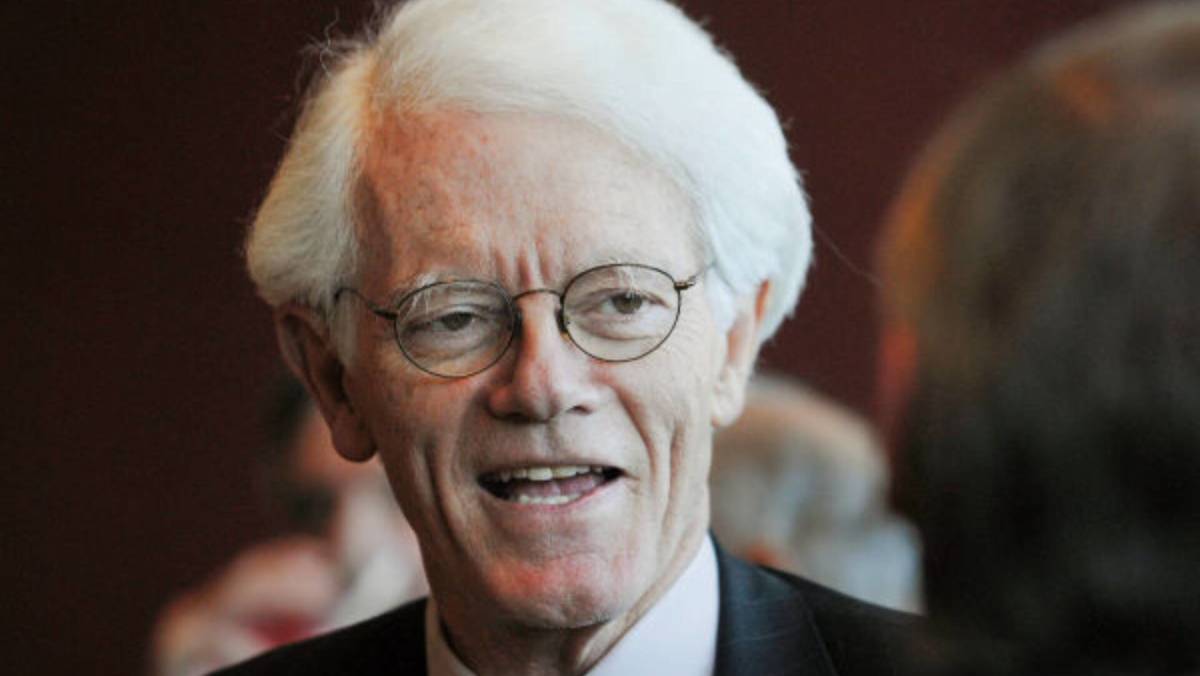AI continues rewriting the rules, and its pace isn’t slowing down anytime soon.
So far this year, the AI trade has minted nearly $4.3 trillion in fresh market cap across a tight cluster of leaders.
The name that dominates is clearly Nvidia (NVDA) , which is hovering at nearly $4.5 trillion in value, and accounting for 7% of the entire S&P 500 by index weight.
Moreover, Wall Street’s spending math shows that the AI hype train isn’t slowing down anytime soon.
Bank of America projects AI investment to grow by over $1.2 trillion annually by 2030 as hyperscalers, enterprises, and governments build compute, power, and networks. Goldman set the early ramp near the $200 billion mark by 2025.
Hence, the setup seems straightforward, with towering winners, growing capex, and a market leaning hard into a single theme. That’s where seasoned investors look for a different lens.
Cue Peter Lynch, who is perhaps one of the most influential fund managers in the modern market. He has a fresh, unexpected take on today’s AI boom, so before chasing the next big headline, you’d want to hear how he frames the risk and the opportunity.
Peter Lynch lays down an unexpected take on the powerful AI boomSteve Liss/Getty Images
Legendary fund manager Peter Lynch has seen many ups and downs in the market over the past several years, and he’s not jumping into this one.
The former Fidelity Magellan Fund chief, who averaged almost a 30% annualized return during his 13-year run ending in 1990, said he’s staying away from the AI trade altogether.
“I have zero AI stocks,” Lynch said on The Compound and Friends podcast. “I literally couldn’t pronounce Nvidia until about eight months ago.”
Related: Veteran analyst drops 3-word verdict on AMD and OpenAI deal
Though Mr.Market continues to debate whether the AI boom is the next dot-com bubble, Lynch’s message is that discipline always beats prediction.
He took the opportunity to remind his listeners of his long-held principle in“Know what you own.”
Too many investors, he said, “put $10,000 into a stock they heard on the bus,” without understanding its business, which is guesswork best avoided.
Fund manager buys and sells
Modern investors, he feels, have “so many things that are better,” from unemployment insurance and Social Security to a Federal Reserve that acts as a stabilizer.
He isn’t dismissing the tremendous potential in AI, but it’s more of an acknowledgement that he doesn’t understand it well enough to bet on it. In a market that’s fixated with the big thing in AI, the lesson from one of the giants in investing is incredibly pertinent.
-
Own what you understand, not what’s trending.
-
Lynch has zero AI exposure by choice.
-
He feels today’s investors have more protection and information than ever.
-
Discipline and simplicity still drive long-term success.
The “AI bubble” debate has clearly outgrown social media and some of the biggest names in Wall Street see history repeating, while others argue it’s just beginning.
The bears sense a late-cycle frenzy, underscored by runaway valuations, circular funding, and capital spending racing ahead of profits.
Longtime tech investor and fund manager James Anderson compares the OpenAI funding loop, for instance, to the vendor-financing spiral that wrecked the telecom space back in 2000.
Related: Palantir just walked away from a billion-dollar fight
Bill Gross warns of “malinvestment” as Big Tech invests billions in data centers without clear payback. Jeremy Grantham calls this the “gold rush phase” of innovation, which is invariably overbuilt before the winners emerge.
The big banks straddle both camps.
JPMorgan forecasts AI capex near $450 billion in 2025, enough to move GDP. Bank of America thinks that figure may triple to $1.2 trillion by 2030, despite the physical choke. Also, U.S. data-center spend has hit a record $40 billion run rate, underscoring the AI arms race narrative.
The industry’s top CEOs liken it more to a platform shift, and not a bubble. Sam Altman admits AI is “in a bubble,” but the kind that “creates lasting progress.”
Meta Platform’s CEO Mark Zuckerberg says under-investing is the bigger mistake. AMD’s Lisa Su says that this is “the beginning” of AI’s cycle, while Nvidia’s Jensen Huang feels the payoff is decades long.
Related: Cathie Wood pours millions into a 26-year-old tech giant
This story was originally reported by TheStreet on Oct 8, 2025, where it first appeared in the Technology Business News section. Add TheStreet as a Preferred Source by clicking here.
